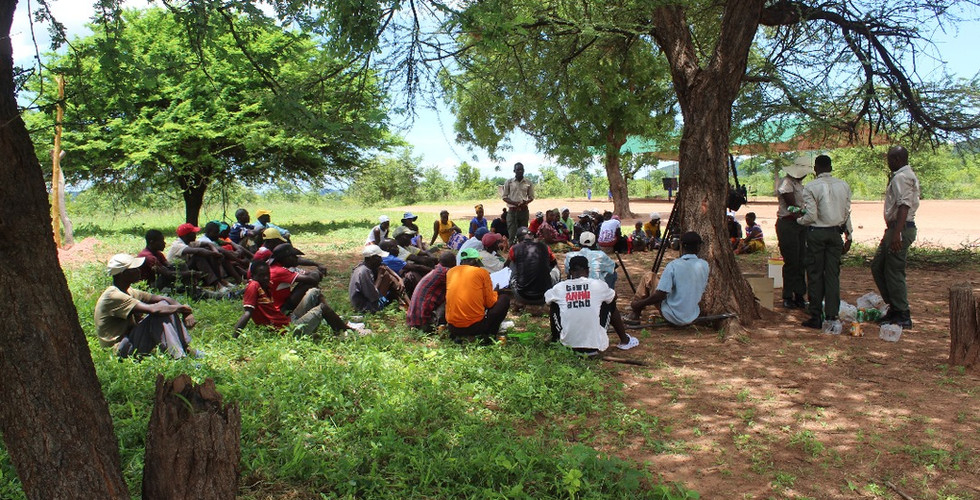Progress in the Fight Against Human-Wildlife Conflicts
- lisac164
- Feb 6, 2024
- 3 min read
As part of the Nyaminyami Human-Wildlife conflict mitigation project, workshops on livestock management were held in Mola Ward 3. These workshops aimed to increase knowledge, change herding/kraaling culture, and lead to better management of crops. The farmers in these communities were used to traditional methods of herding, such as leaving livestock to graze without a herder present. Local stakeholders and government departments, such as Veterinary Services and AGRITEX, were also in attendance. A total of 48 communal farmers took part in the workshops (27 males and 21 females). One farmer said, "The training on livestock management has been very helpful. I now know how to properly care for my livestock and prevent conflict with wildlife. Thank you to WCA and the other stakeholders for this opportunity."
In addition to the livestock management training, Wildlife Conservation Action is responding to the farmers' concerns about disease outbreaks. The organization will be providing agro-vet chemicals and distributing them in Negande ward 5. This technical support is being provided in collaboration with the Veterinary Services department, and the distribution and livestock vaccination will be done under their supervision. Another grateful community member commented, "I am grateful that WCA and the Veterinary Services department are providing this support. The agro-vet chemicals will help to protect our livestock and reduce the losses we are experiencing.
WCA had assisted farmers with traditional kraals, but these were only suitable for big stock such as cattle and donkeys. Small stock farmers were still facing the problem of carnivores breaking into their traditional kraals. However, through community feedback, WCA introduced raised kraals as a solution. Farmer James said, "The raised kraals have been very helpful, as the carnivores are no longer able to get to our livestock. This has given us peace of mind and enabled us to sleep soundly at night, knowing that our livestock is safe and secure." The raised kraals have also allowed farmers to raise their livestock in more open areas, giving them better access to grazing land and allowing them to use land that was previously avoided due to the fear of carnivore attacks. WCA will continue to assist farmers with the construction of raised kraals, as well as provide technical advice on how to maintain and use them effectively.

WCA's interventions, including the introduction of raised kraals, have had a significant impact on the farmers in the area. There has been a drop in the number of livestock lost to predators, leading to improved livelihoods for farmers and their families. A total of 126 households have benefited from the project, receiving agro-vet chemicals to protect their livestock. In addition, no livestock have been attacked or killed in a raised kraal, demonstrating the effectiveness of this intervention. These results demonstrate the value of working with the community to develop solutions that meet their specific needs and address the root causes of livestock losses. Through continued collaboration and support, WCA will be able to build on these successes and further improve the lives of the farmers in the area.
As part of its ongoing efforts to support farmers in the Nyaminyami area, WCA will be hosting a training on human-elephant conflict mitigation in February. This training will provide farmers with the skills and knowledge needed to reduce conflicts with elephants and protect their livelihoods. The training will cover topics such as elephant behavior, elephant deterrence techniques, and conflict resolution. We are looking forward to this training and the positive impact it will have on the community. Stay tuned for more information on HWC mitigation.








Comments